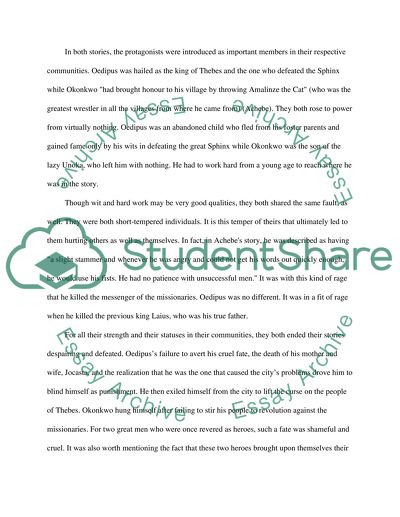Cite this document
(“Elements of Tragedy from Oedipus the King and Things Fall Apart Research Paper”, n.d.)
Retrieved from https://studentshare.org/literature/1454088-elements-of-tragedy
Retrieved from https://studentshare.org/literature/1454088-elements-of-tragedy
(Elements of Tragedy from Oedipus the King and Things Fall Apart Research Paper)
https://studentshare.org/literature/1454088-elements-of-tragedy.
https://studentshare.org/literature/1454088-elements-of-tragedy.
“Elements of Tragedy from Oedipus the King and Things Fall Apart Research Paper”, n.d. https://studentshare.org/literature/1454088-elements-of-tragedy.


